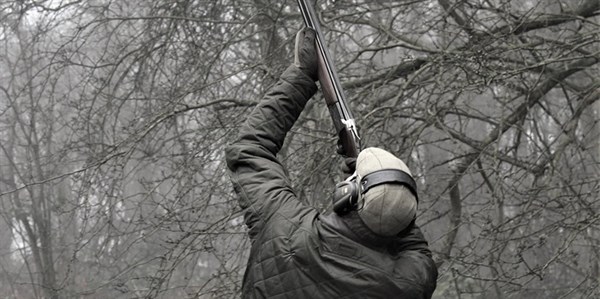GWSDF Auchnerran Shoot
After a very difficult growing season in the north-east of Scotland, our game crops have grown well in time for the season ahead. With a full programme this year of three mixed species days and 10 rabbit days, both walked up over spaniels and ferreting, we hope to deliver another successful year of truly wild Scottish sport. Some habitat enhancement is taking place on the farm in the form of ride cutting and maintenance work across the farm. This is primarily aimed to benefit the wonderful woodcock population which includes a strong breeding population of residents, as well as a large fall of migratory birds later in the year. This habitat work will also create the muchloved, biodiversity enhancing edge effects for butterfly species such as the orange tip and scotch argus.
Allerton Project Shoot, Loddington
Woodland work has been a key focus for the shoot since the end of the shooting season. Our cost-neutral arrangement with a local timber business has generated enough cordwood for them to make a living while creating enough waste material to provide the visitor centre with woodchip for the winter. This work has created glades, widened rides and we have been actively planting shrubs to improve the understory. Prior to renewing pen fences, we have used this as an opportunity to thin pheasant release woods to increase groundlevel escape cover to help keep raptor predation low. Our birds for the season came from Paul Jeavon’s game farm in Worcestershire and we will continue our research with Exeter University quantifying the enhancement of the rearing process using perches and how this can translate into better survival – especially post-shooting. We continue to struggle with wild game productivity, but our radiotracking work has revealed some interesting findings – see page 17
Rotherfield Shoot
Summer trapping ended in July and roe buck stalking starts during the last week of July. Pens for the 600 tagged cock poults were erected on fresh grass in August and poults arrived a few weeks later. Feeders/hoppers were moved in September from their spring sites, to where they are needed during the shooting season and once harvest was complete, we carried out the autumn game counts. To start autumn/winter trapping, a reduced number of traps are re-set, and as there are no trap walks in winter, they are set to be checked on the daily feeding/hopper checking route which will help stop rats and squirrels taking advantage of the game food. Shooting starts with a walked-up day booked for 7 October with the first driven day taking place at the end of October
Latest Farm advice…
Although much of our work is focused on establishing high quality habitats at the Allerton Project farm, we also work hard to ensure that farmland birds don’t struggle over the winter too. Despite our best efforts to create a diverse range of wild bird seed mixtures covering brassica, oilseeds and cereals from annual/two-year options, supplementary feeding is crucial for our small bird species. Methods of feeding mixtures of wheat and small seeds have evolved since the option was first conceived within Environmental Stewardship and then adopted through Countryside Stewardship agreements.
A combination of ground feeding and feed buckets deliver the goods for a wide range of species, ensuring feed is available throughout the key period between December to May/June. The use of feeders outside the Visitors Centre has been very successful. They enable visitors to see first-hand the great benefits of the work across the farm. It is not unheard of to have some of the industry’s leading speakers sidelined by the bullfinch, goldfinch and chaffinch spotted through the window on the feeders behind them. If you are already supplementary feeding, well done and please keep at it. Otherwise, why not give it a try? It’s a lifeline for our farmland birds and a very rewarding activity.
Save 25% on our most complete package - now only £6.35 a month

Save 25% on GWCT Premium Membership, which includes outdoor insurance, a free copy of our bestselling book The Knowledge, exclusive discounts and much more.
Join online for only £4 a month
Get access to dozens of informative wildlife and land management courses as well as important educational material and legislation updates.